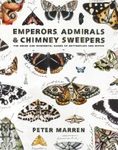![My House of Sky My House of Sky]()
Click to have a closer look
About this book
Customer reviews
Biography
Related titles
About this book
Since rising to fame in 1967, when his work The Peregrine was awarded the Duff Cooper Memorial Prize, J. A. Baker has captured popular imagination with his vivid depictions of British landscapes and native wildlife. Compelling, strange, and at times both startlingly funny and cruel, Baker's prose is at one with his image as a writer, which has, since the publication of his first work, been characterised as an obsessive recluse.
Next to nothing was known about Baker, who died in 1987, until an archive of his materials and those related to him was brought together and given to the University of Essex in 2013. Now it has been possible to piece together an accurate view of the life and unpublished work of the man whose writing has become 'the gold standard for all nature writing' (Mark Cocker), and whose work has influenced naturalists including Richard Mabey and Simon King, and screenwriters David Cobham and Werner Herzog.
This new book showcases some of the most compelling parts of the Baker Archive, containing previously unknown details of Baker's life as well as previously unpublished poems. It provides an invaluable new insight into both the sensitive, passionate character of J. A. Baker and the state of late twentieth-century Britain, a country experiencing the throes of agricultural and environmental change.
Customer Reviews
Biography
Hetty Saunders was first introduced to J. A. Baker and the Baker Archive as a literature postgraduate at the University of Cambridge. She was instantly captivated by the astounding prose of Baker’s first book, The Peregrine, and the mysterious life of its author. Hetty has been working as an independent researcher and archivist in the Baker Archive since October 2015; she has written a descriptive bibliographic catalogue of the Archive, available soon from the website of the Albert Sloman Library Special Collections at the University of Essex.
Robert MacFarlane is a prolific author whose bestselling books about the British landscape and beyond include The Old Ways, Landmarks, Holloway, Mountains of the Mind and The Wild Places. He is a fellow of the Royal Society of Literature.









































